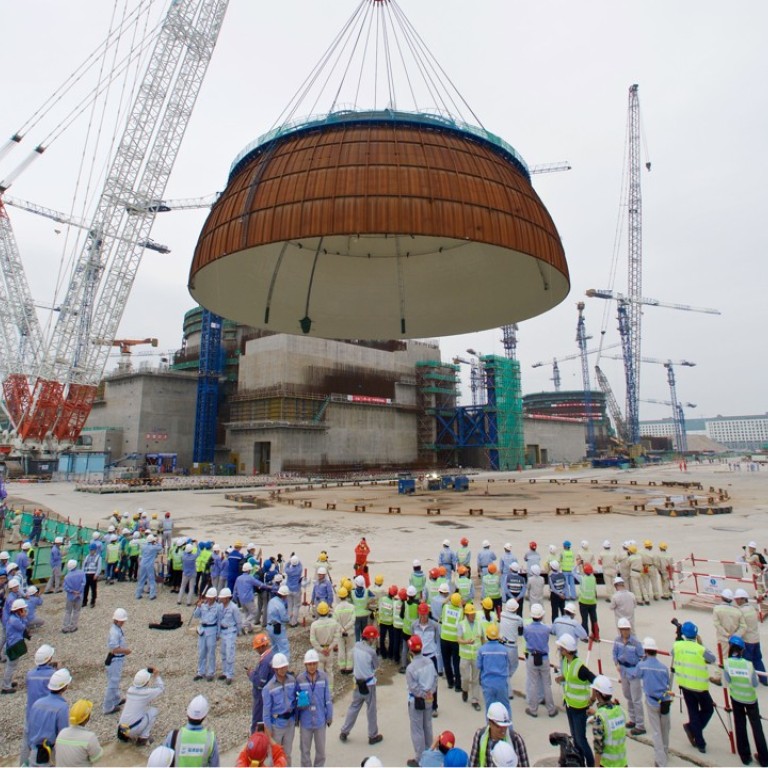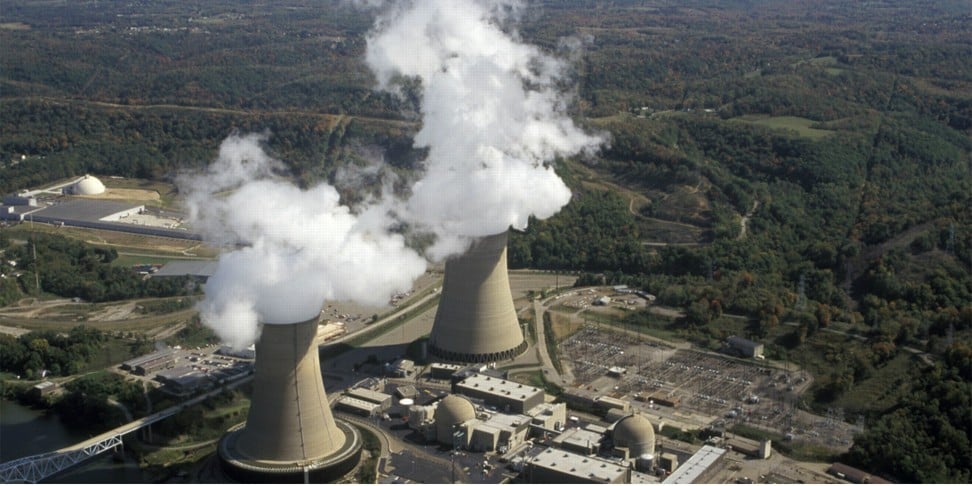
China to open university in Tianjin to train workers for nuclear power industry
State-owned CNNC plans to address severe skills shortage as the country tries to reduce its reliance on coal-powered plants
Beijing plans to set up another university dedicated to nuclear power technology to address a chronic skills shortage as the country tries to develop its nuclear energy industry and reduce its reliance on coal.
China National Nuclear Corporation (CNNC), a state-owned nuclear power developer and operator, signed a strategic cooperation agreement on Friday with northern Chinese megacity Tianjin that included establishing a nuclear industry university with master’s and doctorate programmes.
The deal aims to make Tianjin a high-end technological base for the developer, while promoting the transformation and development of the city’s innovation industries, news outlet Thepaper.cn reported.
CNNC in 2012 said it wanted to set up a “corporate university” to train more specialised talent and fill the yawning personnel gap in the nuclear industry.
Only 20 per cent of the 2,300 graduates hired by the company have nuclear-related majors, according to Wan Gang, director of the China Institute of Atomic Energy, CNNC’s main research body.
China’s state-backed nuclear industry has struggled with a lack of graduates to work in the critical sector, and Wan said the existing nuclear-related majors “cannot satisfy the demand for talent” in fields such as nuclear fusion, uranium enrichment and post-processing.

The development of China’s nuclear industry is key as the country works to reduce its reliance on coal-powered plants, with a far-off goal of having 58 gigawatts of installed nuclear capacity by 2020.
While its energy consumption has been steadily growing, nuclear energy supplies only around 3 per cent of its total power usage. As of November, China had 37 nuclear power units in commercial operation, with another 19 under construction, according to state media reports.
The agreement comes after CNNC earlier this month unveiled a nuclear industry university in Suzhou, Jiangsu province that would help China advance from “a nuclear power to a nuclear superpower” and provide a high level of training for workers involved in the belt and road infrastructure initiative, according to its website.
CNNC has also signed strategic cooperation agreements on training with at least nine Chinese universities, the company’s website says. Chinese colleges with nuclear technology programmes include Tsinghua University, Peking University and Xian Jiaotong University.
Wang Yinan, a researcher with the State Council’s Development Research Centre, told state-run tabloid Global Times on Tuesday that the lack of qualified personnel in the industry would threaten China’s nuclear power security.
“China has many nuclear power projects and will continue to develop, which has led to a severe shortage of nuclear talent in power plant design, engineering construction, operations and security control,” Wang was quoted as saying.
In addition to constructing its own nuclear power plants, China has also exported the technology to countries involved in its “Belt and Road Initiative”, including building three nuclear reactors in Pakistan.

